Best HDD for mining crypto in 2025: Expert recommendations for crypto storage
We reviewed the top hard drives for mining CHIA, StorJ, BURST, Arweave, and other cryptocurrencies

Sign up for breaking news, reviews, opinion, top tech deals, and more.
You are now subscribed
Your newsletter sign-up was successful
Looking the best HDD for mining crypto? We've tested a massive range of storage options that are up to the job.
As someone who has tried their hand personally with HDD mining as well as helping my colleagues set up many of their mining rigs, I can unequivocally state that the best HDD for mining is the Seagate IronWolf Pro - it offers a good mix of low-cost, reliable, and plentiful storage, and comes in a variety of capacities.
Using HDDs to mine cryptocurrency is an inexpensive yet scalable option that is approachable for both first-time miners and professionals. That's thanks to its ease of setup, a thriving community, and growing network space for cryptocurrencies such as Chia, which is generally regarded as one of the more well-known cryptocurrency plays in the segment. If you're running the best hard drives or the best NAS hard drives, you'll be well on your way.
Storage-based crypto alternatives to Chia include StorJ, BURST, and Arweave. All of which are mineable in similar ways but come with different approaches to the same core issue: leveraging storage as a viable decentralized consensus mechanism.
Best HDD for mining crypto overall
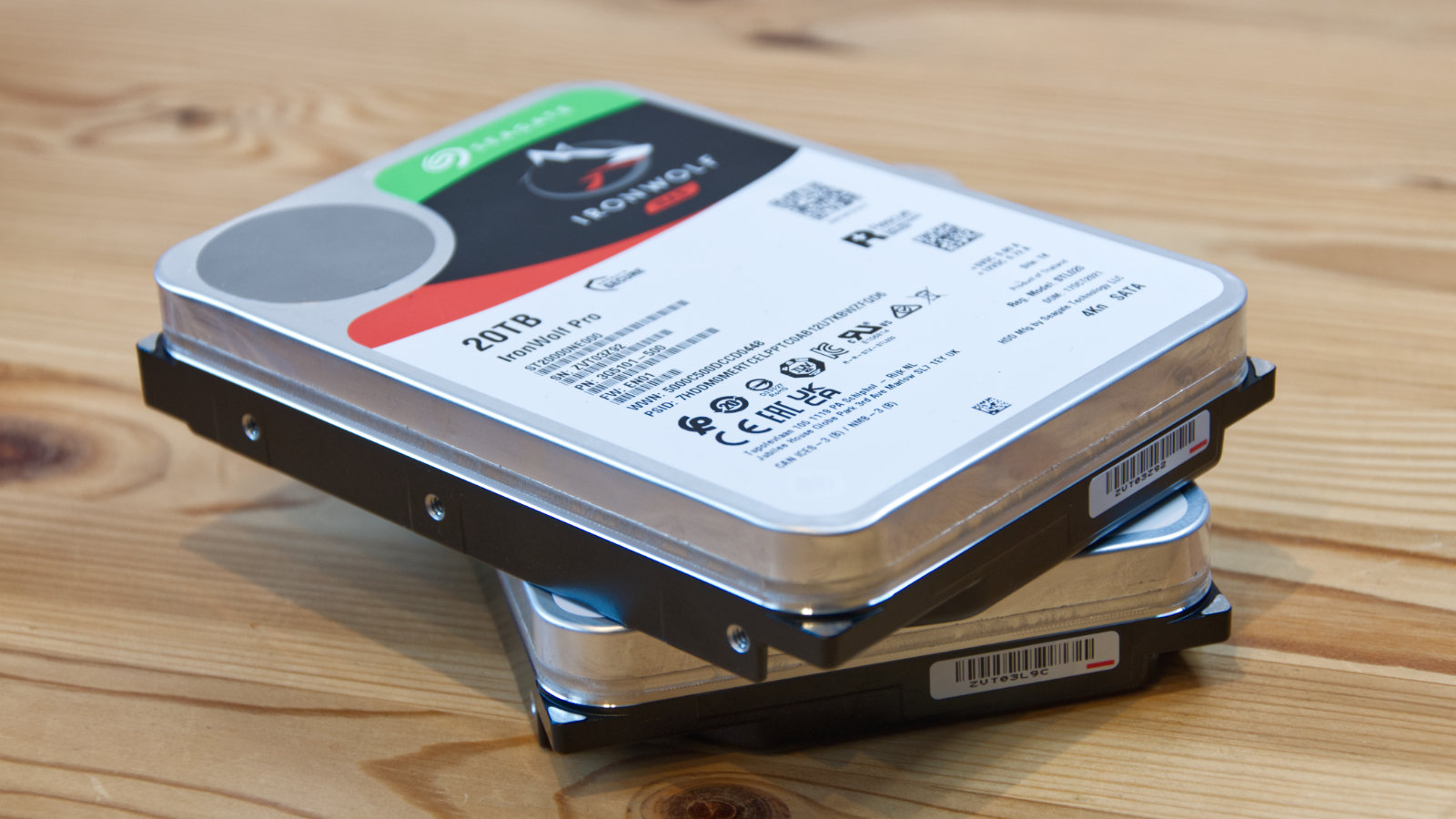
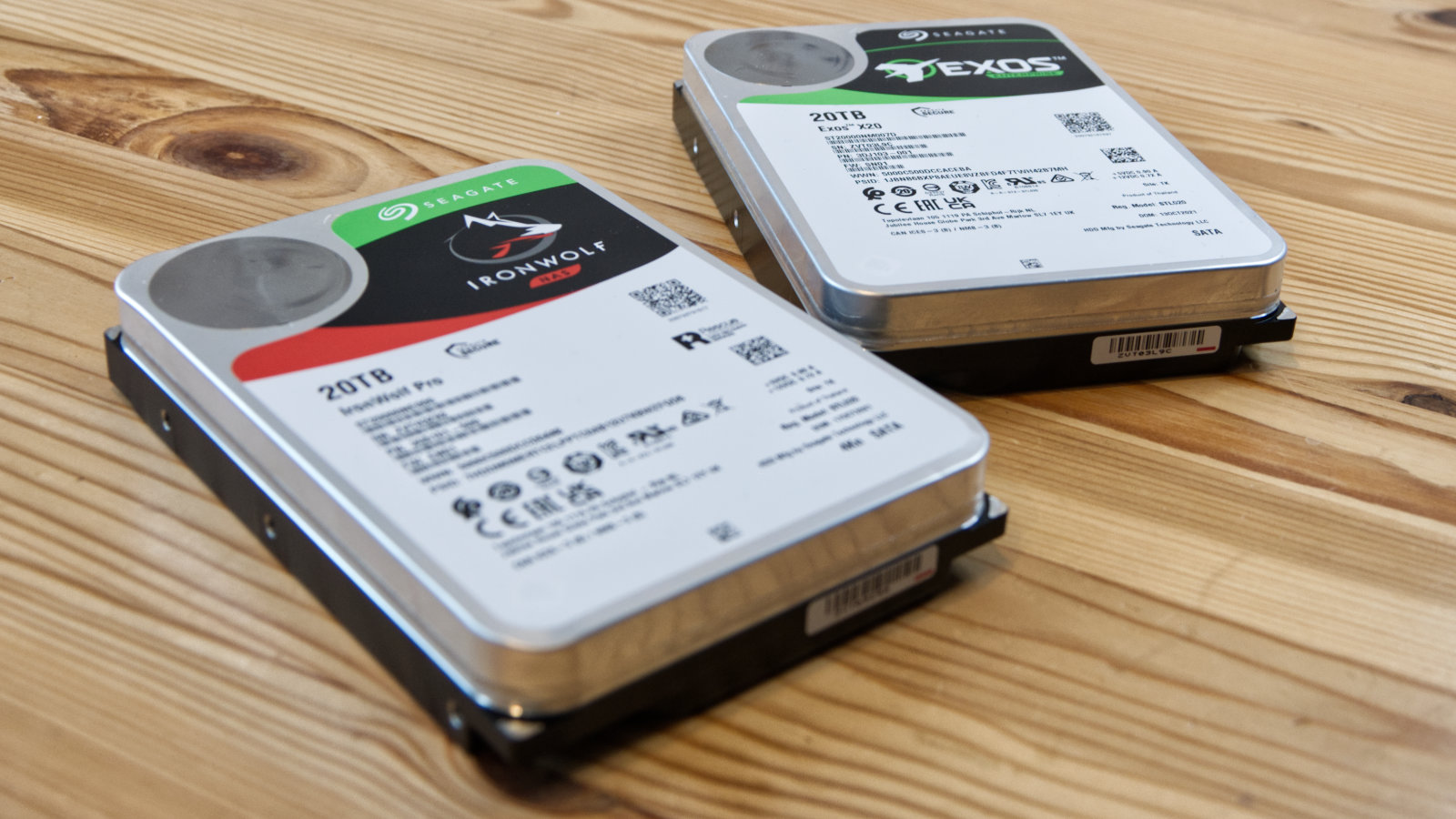
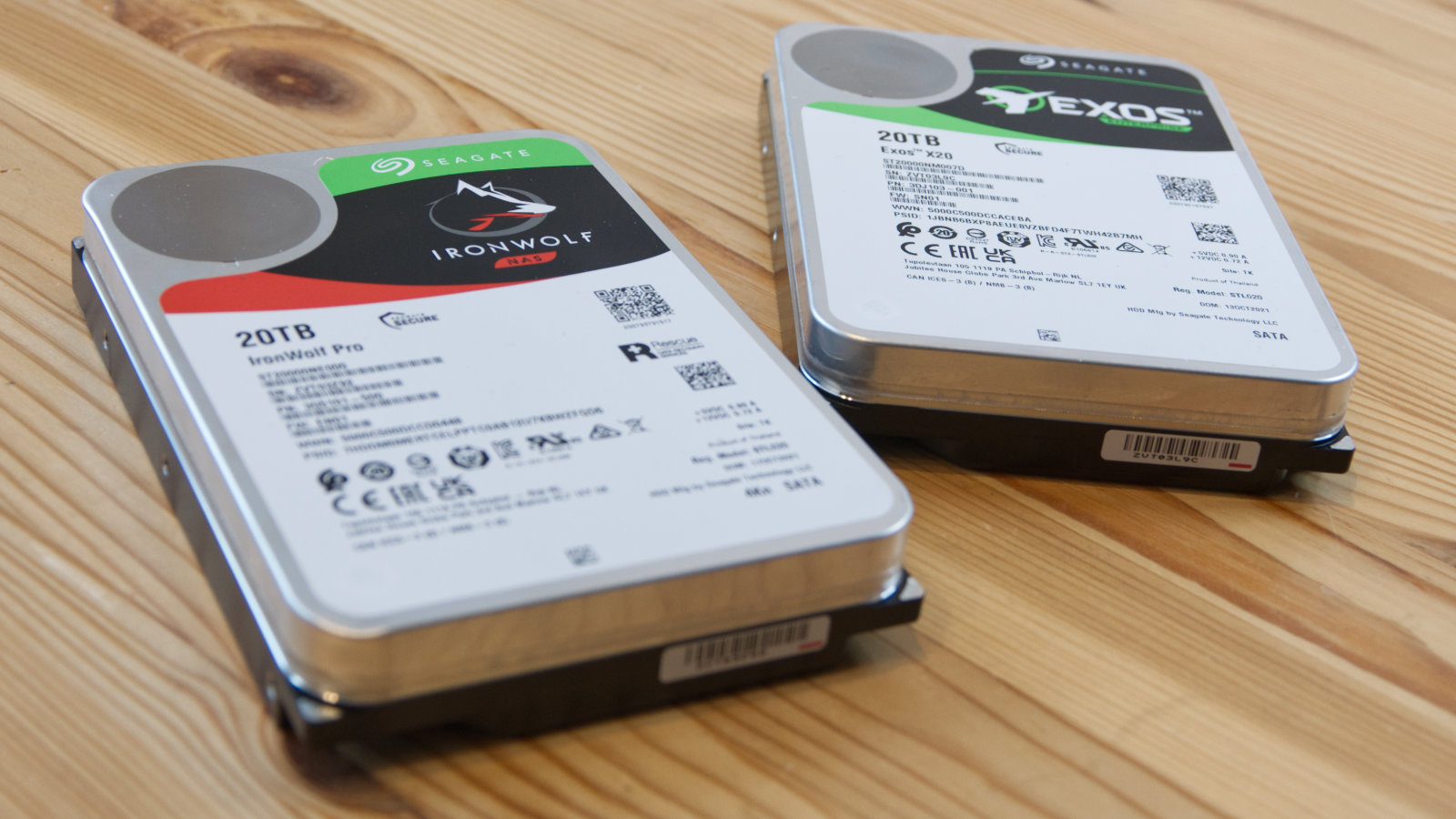
Specifications
Reasons to buy
Reasons to avoid
The Seagate IronWolf Pro is a datacenter-grade NAS drive that holds its own with the best out there while offering large capacities in the same 3.5-inch form factor that its peers offer, while doubling down on reliability as a metric.
All of this is important to a prospective miner, irrespective of whether it is their first hard drive purchase or an extension to an already set-up farm.
The IronWolf Pro is a popular choice for a variety of workloads, including video editing, AI, and ML tasks, and even home theater setups for those wanting an easily accessible media library on demand.
This means it also tops our recommendations for the best NAS drives currently, and with good reason: it is relatively well-priced and robust as a storage option.
It clocks in at just about 20 cents a gigabyte (or $20 a terabyte) at the higher end, something that one could argue makes it slightly more expensive than the competition. It is, however, offset by its longer-than-average warranty term (5 years) and high reliability (rated at 2.5 million hours MTBF), both of which underpin its value proposition.
This makes it a no-brainer for users across the board with the IronWolf Pro offering capacities from 2TB to 30TB, and while most miners would be interested in the higher capacity models (that offer better value for money), even the 12TB models are worth considering at current price points.
For those looking to score a cheaper option while aiming to compromise as little as possible on reliability, one can always pick up the IronWolf Pro for less by opting for a recertified unit, trading cost for a smaller warranty period.
Read our full Seagate IronWolf Pro 20TB review
Best hard drive for mining crypto on a budget


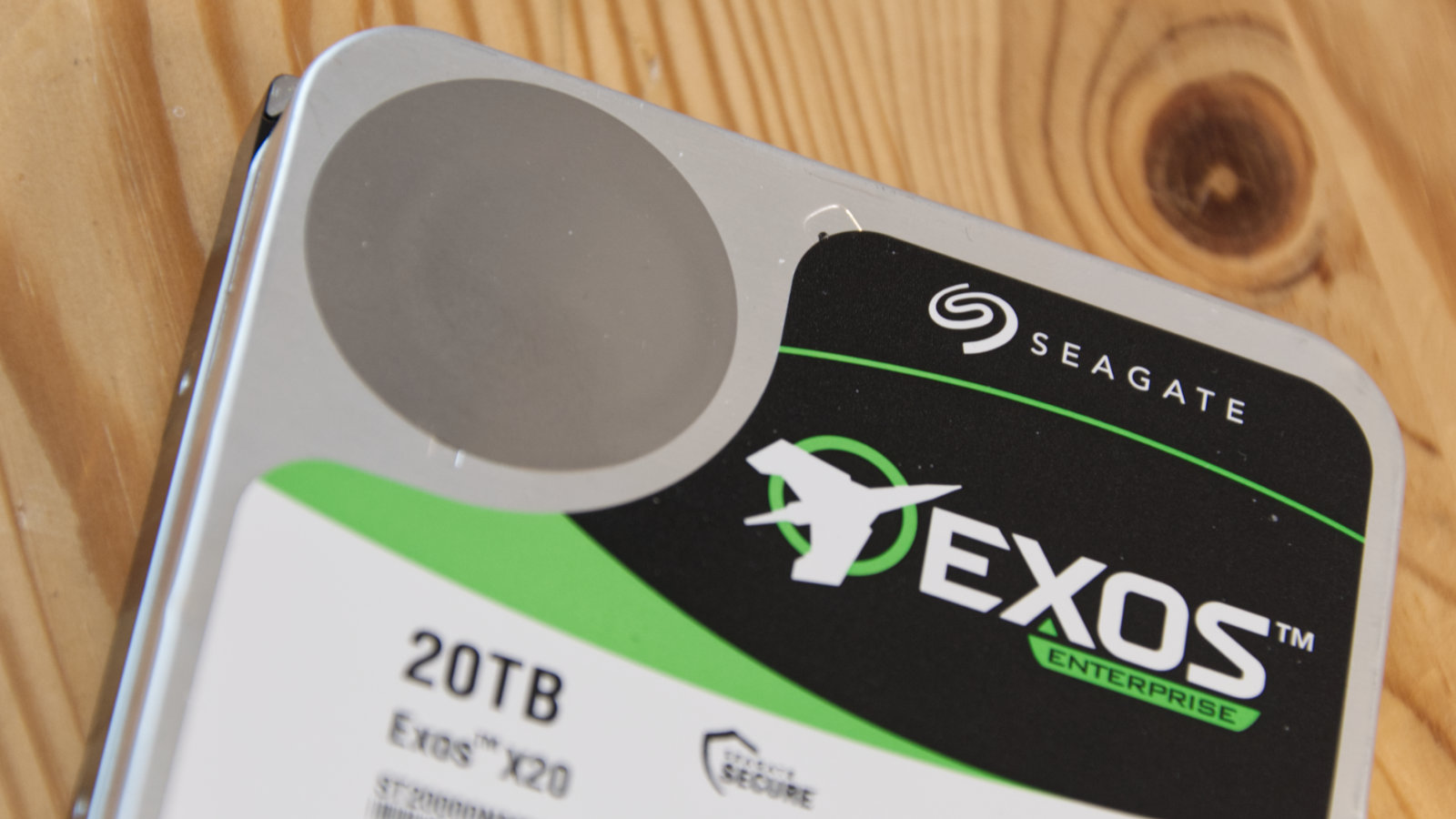
Specifications
Reasons to buy
Reasons to avoid
When searching for absolute value or alternatively a budget option for mining, one has to concede that you will eventually end up considering a recertified hard drive for your needs.
However, not all hard drives are built the same way. The Seagate Exos line-up is an enterprise-grade hard drive offering that you can often find at a mix of a great price and relatively little wear or tear versus the competition; hard drives that are just a year old can often be found on sale at a significant discount.
The trade-off does mean that these are accompanied by a much smaller warranty period, making them a relatively riskier investment for aspiring miners, but one that can arguably be offset by going for newer models.
For those looking to get the most value out of their money, reconditioned or recertified enterprise-grade hard drives make the most sense by far as investments go, offering a blend of reliable performance and uptime for mining, coupled with a lower cost per unit of storage that makes them arguably one of the best places to get your journey started.
Read our full Seagate Exos 20TB review
Best external hard drive for mining crypto
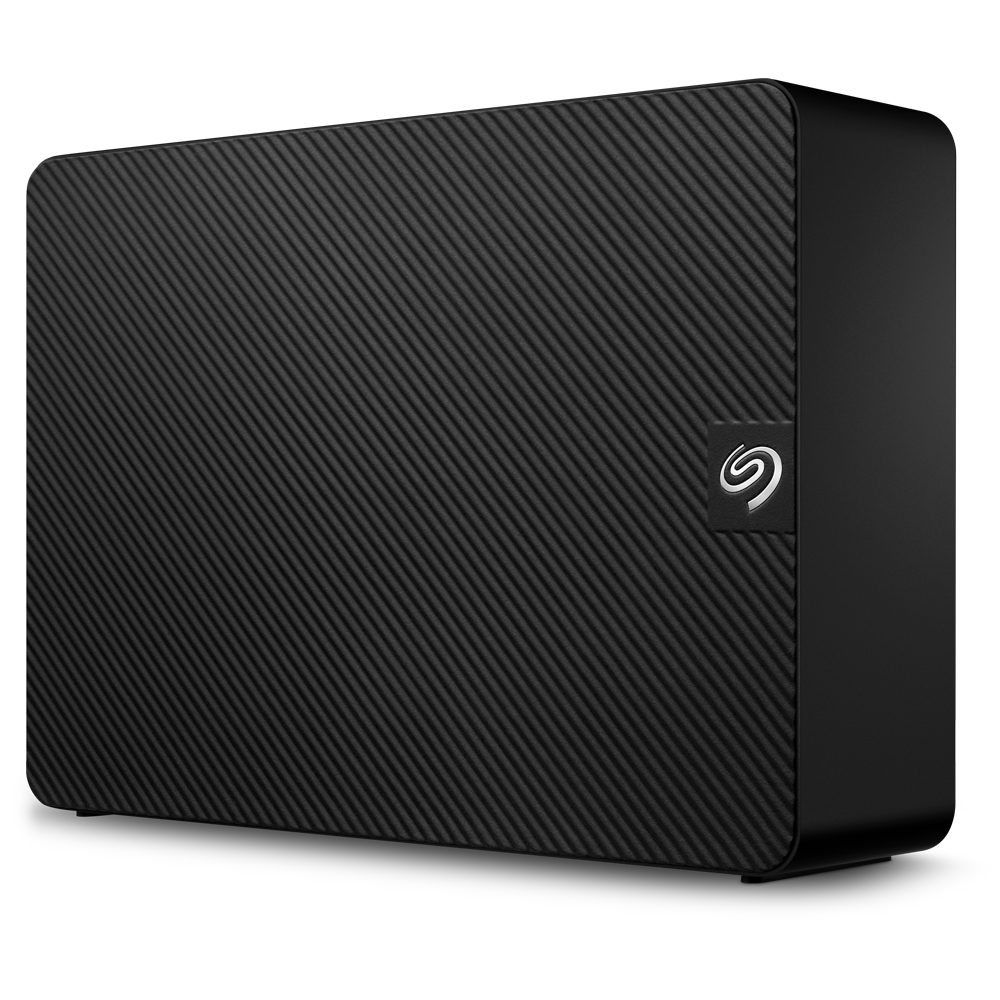
3. Seagate Expansion desktop hard drive
Our expert review:
Specifications
Reasons to buy
Reasons to avoid
Users looking to mine on an external hard drive for a variety of reasons, including a relatively portable offering or the ability to use USB connections to add to their storage offerings, can opt for the Seagate Expansion Desktop Hard Drive.
The Expansion Desktop Hard Drive comes in a variety of capacity options and is often considerably cheaper than its data-center-grade alternatives, while allowing users to maintain a degree of portability should they require it, vis-à-vis a desktop setting.
The tradeoff versus the NAS drives above is reliability with a smaller warranty in tow than the server-grade options offer.
While these drives are notably slower than the enterprise options above, this does not affect mining operations in the slightest. Once plotting is done (preferably on an SSD drive), the drive is essentially in read-only mode for the rest of the mining process in perpetuity, making the cheaper Expansion drives ideal for most miners.
While leveraging USB ports is ideal for most small and medium-scale miners, allowing them to plug as many devices in as possible to a PC, the Desktop version of the Expansion drives tends to have 1 important drawback: they all come with power adapters, unlike their smaller portable SKUs, which feed off a single USB connection only.
This can add to unwanted clutter, even as these drives are less power-efficient than their portable alternatives below, which take up considerably less space, result in less clutter, and run at lower RPMs (and read and write speeds) by default.
Best portable hard drive for mining crypto
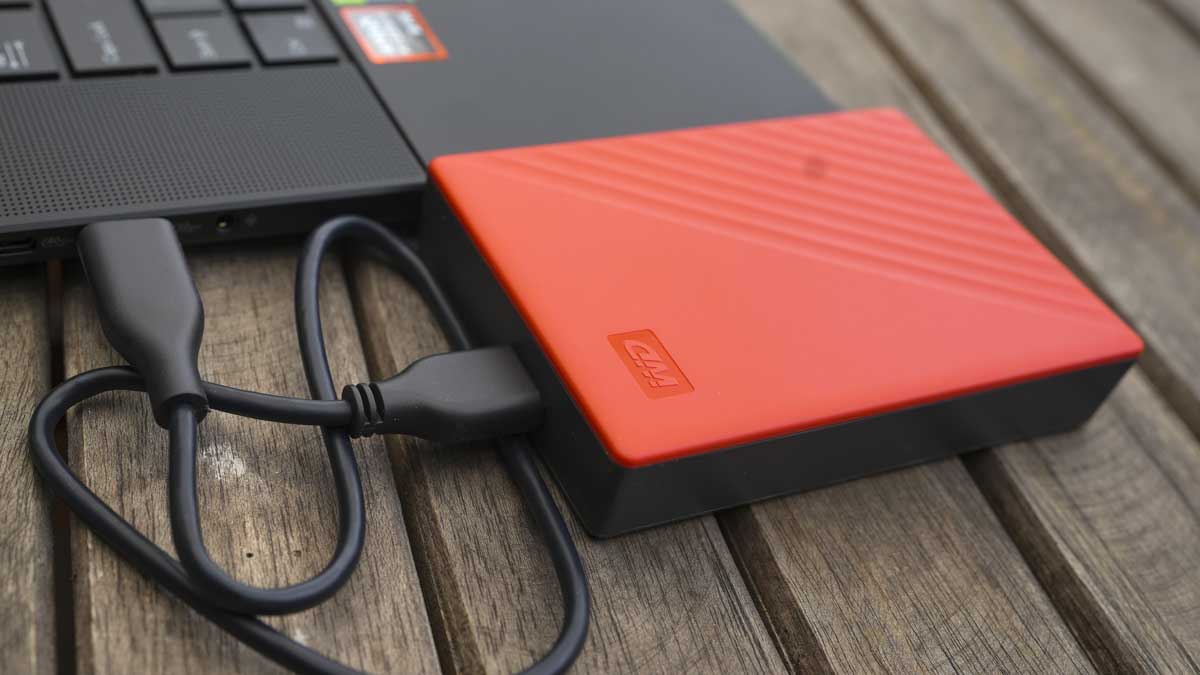
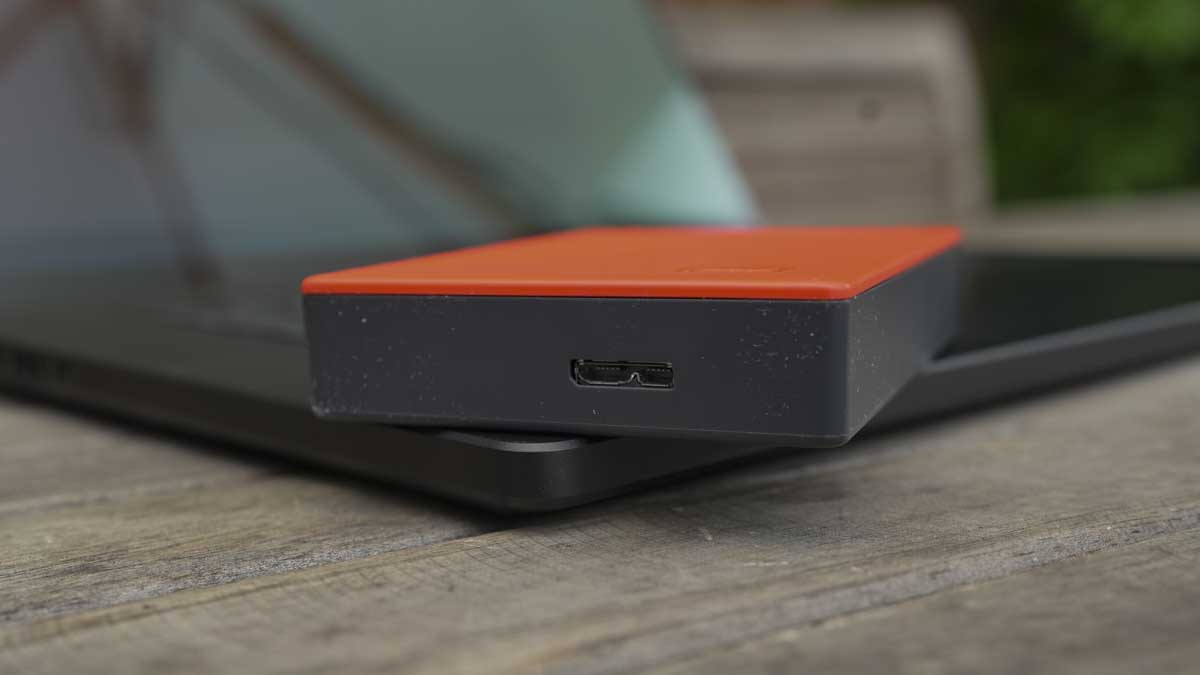
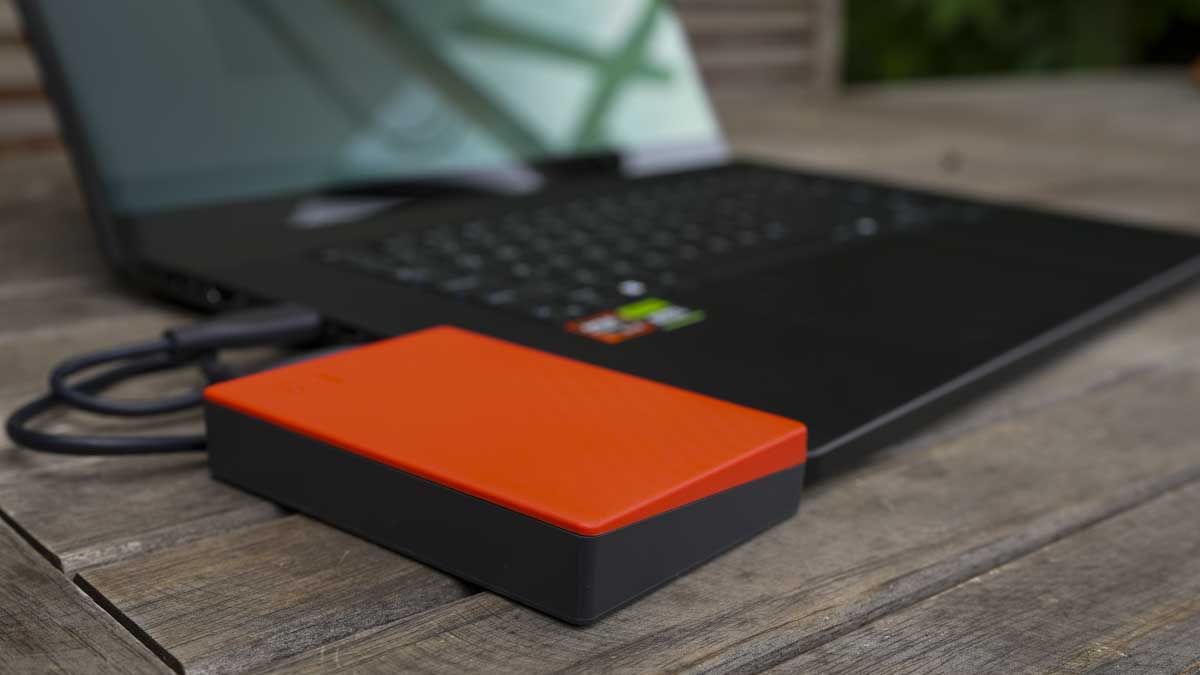
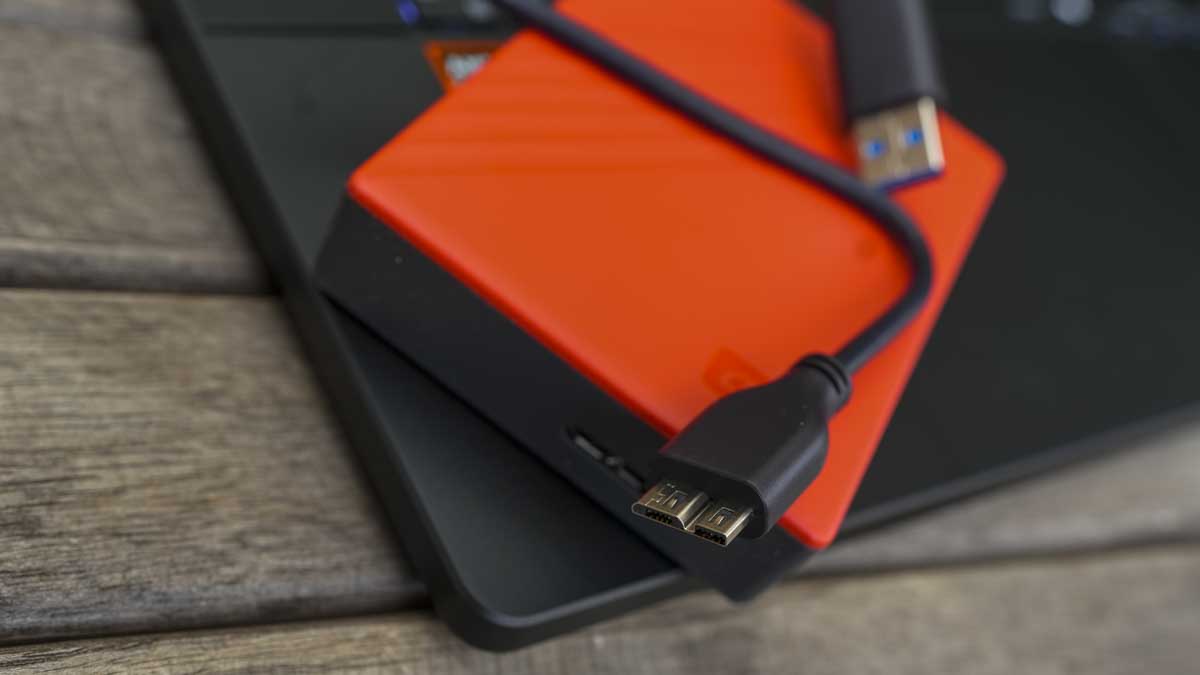
Specifications
Reasons to buy
Reasons to avoid
For users looking to start Crypto mining, but having limited space in play or needing portability to allow for a laptop-based or similar (Raspberry Pi or similar custom solution) mining farm, portable hard drives are a no-brainer to keep things manageable.
The WD My Passport portable hard drive is an easy recommendation to make. It is relatively cost-effective versus other portable hard drive options, offers a USB 3.2 Gen 1 connector, and is readily available at a slew of computer stores across the world.
It weighs considerably less than any of the drives above, while also taking up less space, making it an easier fixture for CHIA miners looking to get more done in a smaller space.
The tradeoff, however, is a higher cost per gigabyte that can make mining on these drives a significantly more expensive endeavor, and should one decide to scale their operations, the My Passport drives cap out at 6TB of storage.
This can prove to be a limiting factor for users thinking of setting up 10s of, if not hundreds or thousands, of drives over time.
Read our full WD My Passport 6TB portable HDD review
How to choose the best hard drive to mine crypto
Picking the best hard drive for your crypto mining needs centers around a mix of reliability, price per unit of storage, and storage restrictions, both physical and in terms of connectivity options.
This inevitably means that users looking to pick a storage medium to get their cryptomining journey started have to consider the following factors:
Cost Per Gigabyte
Hard drive-based mining is a resource-intensive endeavor in terms of capital, and the largest component in terms of cost is the cost of storage. Picking a reasonably cost-effective hard drive means that you end up getting a better return on investment (ROI) while being able to invest in increased amounts of storage over time.
Given that HDD mining overwhelmingly scales linearly with the amount of readable storage available to you and the overwhelming majority of costs are associated with the hard drives one deploys, finding a balance in terms of cost per unit of storage and reliability is key for prospective miners.
Reliability
Having a reliable hard drive can save you considerable amounts of time and resources, thanks to lower failure rates while crypto mining and, in some cases, comprehensive warranty coverage.
Given the cheaper prices that some enterprise hard drives command when sold as refurbished units, most professional miners opt for these instead to get a more cost-effective solution, even when accounting for potential failure. Finding the right balance between reliability and cost per unit of storage, as stated above, is therefore crucial for new and existing miners.
Connectivity and portability
Users can mine crypto on HDDs using a variety of devices once the original plots are set up. This means that many users turn to leveraging a low-powered option, such as a Raspberry Pi.
Knowing what interface the hard drives one plans to deploy use can therefore be helpful, since it could save costs and clutter that would otherwise creep up on a mining setup. Most enterprise-grade drives will use a SATA interface and would need an adapter, while some powered drives require a power adapter and a USB port. Other portable HDDs would skip this altogether, requiring a single USB connection to function.
For users on the move or those mining on the go, investing in a portable HDD might make the most sense. These drives are inexpensive, have a small physical size and power footprint, and can be moved on a whim between crypto farms or rooms, making them great for larger operations at times, but they do this by trading off some of the reliability and larger storage options that other enterprise drives offer.
Crypto mining on an HDD in 2025 and beyond
While the bulk of crypto mining enthusiasm continues to center around ASICs and GPUs, other avenues are considerably easier to set up and much more energy-efficient than their power-guzzling peers.
The argument against Proof of Work (PoW), which drives Cryptomining as an industry, as a consensus mechanism, largely highlights its energy consumption concerns, scalability limitations, and replication issues as something that needs to be considered.
Major cryptocurrencies such as Ethereum have already shifted to a Proof of Stake (PoS) mechanism versus the mining-centric PoW approach, and while the jury is out on whether the implied sacrifice of decentralization in the long term pans out.
This does mean that one may have to consider greener alternatives, but retain the core decentralization principle to potentially find an important balance between the two.
The most important or well-known of these are alternate cryptocurrencies that can be mined via HDD or SSDs (such as Chia XCH) while employing Proof of Capacity (PoC) or Proof of Space (PoS) as their core consensus mechanism.
For now, mining cryptocurrency on a hard drive is here to stay, but it does suffer from thinning margins across the board, thanks to an ever-increasing number of participants, and in some cases, stagnating prices for the underlying coins which support the PoC/PoS consensus method.
You might also like
If you are looking to invest in crypto mining beyond HDDs, we've rounded up all the essential components you'll need in our guides to the best motherboards for mining, best ASICs for mining, best GPUs for mining, best CPUs for mining, and the best SSDs for mining.
Sign up to the TechRadar Pro newsletter to get all the top news, opinion, features and guidance your business needs to succeed!

Rahim Amir is a UAE-based tech writer who enjoys building PCs as much as he enjoys writing about them. He has been professionally writing about PC hardware since 2023, focusing on buyer’s guides, hardware reviews, and sponsored content and features related to tech.
Having built hundreds of gaming PCs and being an avid gamer in his spare time, Rahim tends to have stronger opinions about hardware than most. This is particularly on display when he gets his way with powerful, but minimalistic RGB builds even as Small Form Factor (SFF) PCs come a close second.